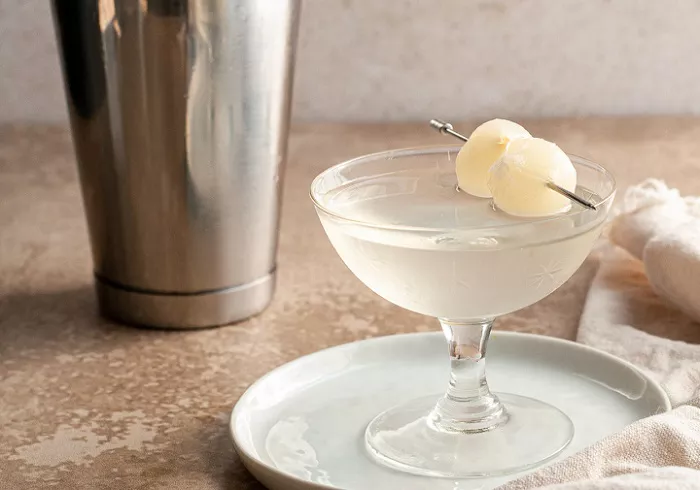The rise of nonalcoholic (NA) cocktails has ushered in a new era for beverage culture, with mocktails becoming increasingly sophisticated and widely available. No longer limited to basic seltzer or juice, today’s nondrinkers are offered an array of complex zero-proof creations crafted to rival traditional cocktails in flavor and presentation.
The growing demand for alcohol-free options has led major brands such as Heineken and White Claw to release nonalcoholic versions of their popular beverages, while innovation continues in the dealcoholized wine and spirit markets. However, as the NA beverage sector expands, so do customer concerns about pricing.
Online discourse and customer feedback indicate a rising frustration with mocktails that can cost as much — or more — than alcoholic counterparts. Social media users and patrons have questioned the value of these drinks, especially when the ingredients appear to be nothing more than juice, soda water, and herbs.
“Why are you paying $14.99 for some damned juice, just so you can look like you’re drinking with other people?” asked Instagram creator @maliktheoracle in a video criticizing mocktail prices.
Customers echo similar sentiments. Anthony, a 43-year-old from New York, expressed dismay in a message to TODAY.com: “Don’t put 2 fruit juices in a glass with a splash of seltzer and a sprig of mint and charge me more than $8.” Another New Yorker, Katy Guest, 36, argued that zero-proof drinks without functional ingredients should cost “at least 25% less than a regular cocktail.”
Critics point to instances where bars serve basic combinations like lemonade with mint or sparkling juice with herbs, priced upwards of $15 — an approach some industry professionals call exploitative. JW Wiseman, founder of Curious Elixirs, refers to these concoctions as “a mockery of mocktails.”
Food and beverage consultant Max Stampa-Brown notes that some establishments are “phoning it in,” using leftover mixers from alcoholic drinks and marking up the price. He emphasizes that the cost of such ingredients is typically low — often under $1 per serving — unless the drink involves truly elaborate preparation.
Despite these criticisms, industry experts highlight that not all NA beverages are overpriced. In fact, when developed with intention, labor, and high-quality ingredients, some mocktails can be more costly to produce than their alcoholic counterparts.
The NA beverage landscape can generally be divided into three categories, each with its own pricing model: zero-proof craft cocktails, ready-to-drink (RTD) options, and simple juice-based drinks.
Zero-Proof Craft Cocktails
Bars with robust NA programs often utilize premium alcohol-free spirits like Seedlip, Ritual, Lyre’s, or The Pathfinder. These products are designed to emulate traditional spirits in complexity and mouthfeel and are priced similarly to mid-tier liquors.
“These are not shortcuts,” says Michelle Green, Lyre’s vice president of North America. “They’re intentionally built to deliver body, balance, and a premium drinking experience.”
Dan Vannatter, beverage director at Cafe Zaffri in New York City, reports that developing the restaurant’s two signature NA cocktails — the Pink Moon and Daisy Chain — took two to three weeks. Each costs about $7 to make and sells for $18, reflecting the complexity and labor involved.
Ready-to-Drink (RTD) Beverages
For venues without the resources to create NA drinks in-house, RTD options provide a convenient alternative. Brands like Curious Elixirs, Ghia, and Phony Negroni offer prepackaged mocktails that are marked up for profit similarly to beer or canned cocktails.
Green notes that RTDs reduce labor, waste, and spillage, making them appealing to businesses. Curious Elixirs, for example, wholesales its beverages at $6 per bottle (two servings), with a recommended retail price of $10 per glass.
However, Stampa-Brown warns that some establishments inflate prices unfairly. He cites the Phony Negroni, which retails for about $5.25 per bottle, but may be listed for double or more at restaurants. “I think everybody’s just overpricing this,” he says, adding that such pricing can alienate the very audience mocktails are meant to welcome.
Juice-Based Mocktails
While elaborate NA drinks may justify a higher price, customers and experts agree that simple juice blends should not. A virgin mojito made with lime, mint, and soda, for example, should not cost $15.
Customers are encouraged to advocate for transparency in pricing. If an NA option isn’t listed on the menu, patrons should ask about the cost before ordering.
Dan Stern, head bartender at Bandits Burgers & Dive in New York City, suggests looking for alternative ingredients on the cocktail menu and customizing a soda-based drink. “Ask for soda with a splash of citrus,” he advises, noting the cost to the bar is minimal. “It shouldn’t cost you an arm and a leg — or even a pinky.”
As the NA sector continues to mature, discerning consumers may need to navigate the space carefully — celebrating quality offerings while challenging unfair pricing.
You Might Be Interested In:


